Boracay, one of the world’s most famous beach destinations, has reopened for a limited-numbers test run almost six months after closing for a cleanup operation to reverse the fortunes of the resort island once labeled a “cesspool” by Philippines President Rodrigo Duterte.
The sun was out to welcome a small group of tourists from the province of Aklan, where the island is located, and other parts of Western Visayas.
The group was invited to test the newly improved facilities, which include a comprehensive overhaul of the island’s outdated and insufficient sewerage.
The resort island, which was shuttered in April for six months for rehabilitation work, is scheduled to reopen further later this month – labeled a “soft opening” by authorities.
Its famous white-sand beaches were signed off in August as “very clean” and safe for swimming, according to Environment Secretary Roy Cimatu.
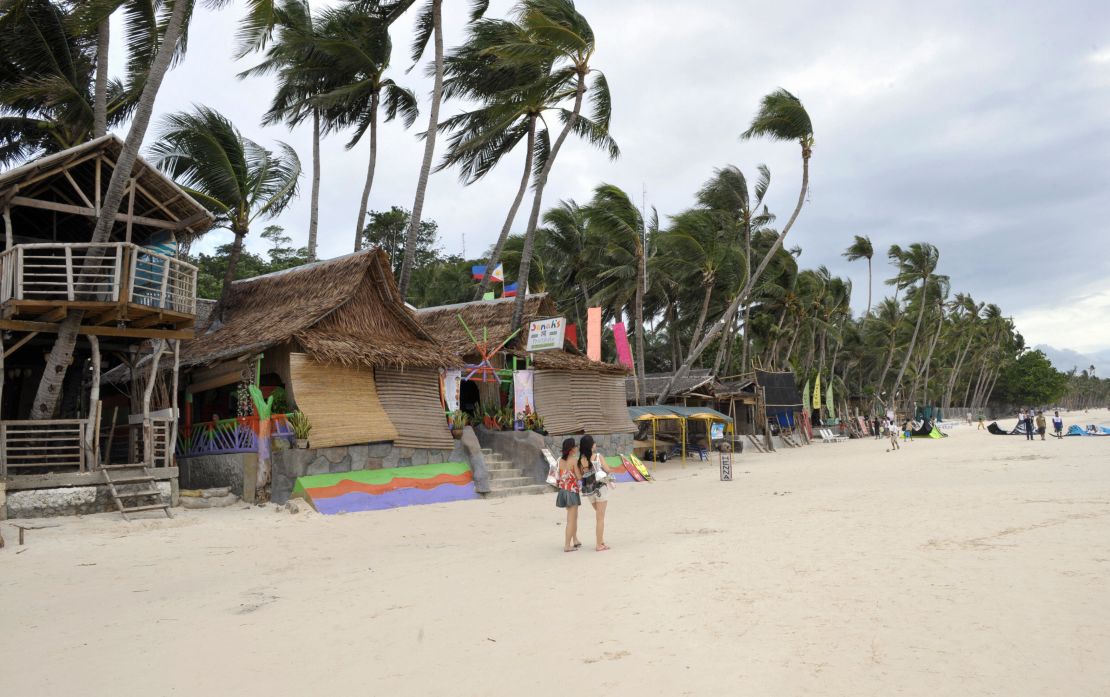
While the cleanup has left the beaches immaculate and the waters crystal clear, significant work needs to be done to get the road system up to speed before larger numbers of tourists are allowed back on the island.
Tourists asked to manage expectations
On Monday, Cimatu told CNN’s Anna Coren and CNN Philippines’ Pinky Webb in a Facebook Live-broadcast panel, which featured the four secretaries who make up an inter-agency task force, that the sewerage and drainage for 68 accommodation establishments cleared to open was “100%” complete.
The system overhaul cost over 1 billion pesos ($18.5 million), Tourism Secretary Berna Romulo-Puyat said during the discussion.
While some road surfaces were not yet completed they would be “significantly finished” – 75-80% – by the wider opening on October 26, Public Works and Highways Secretary Mark Villar said.
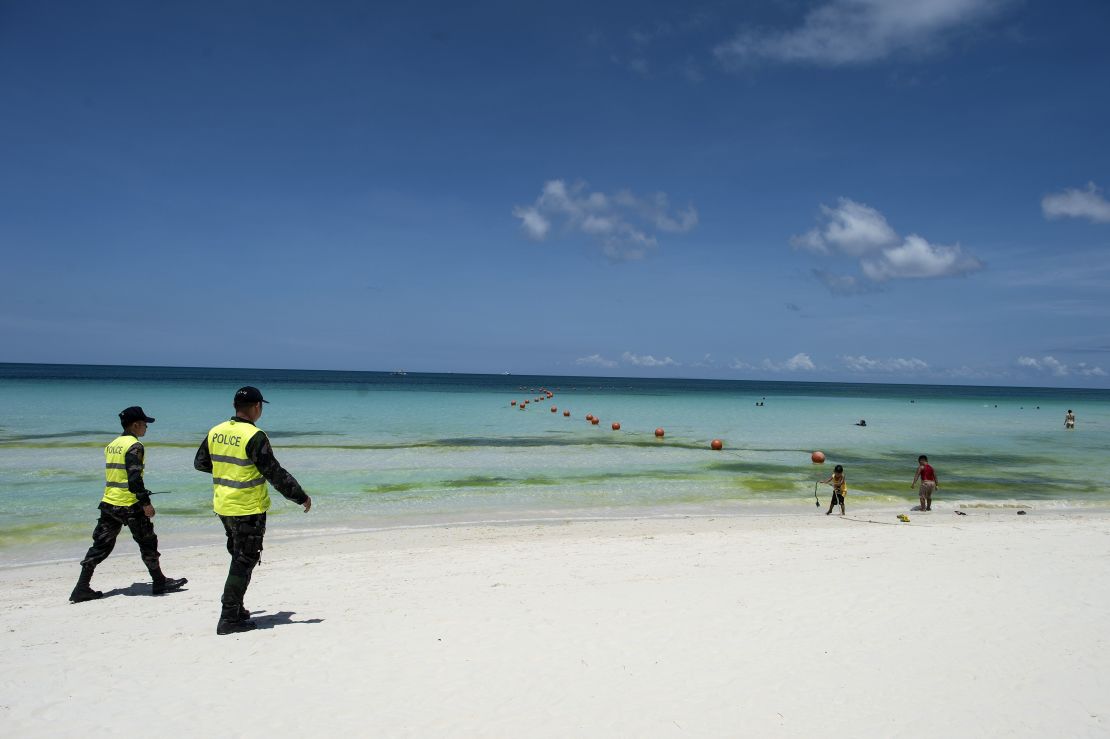
The full rehabilitation could take up to two years, the panel said, and while Romulo-Puyat praised reform efforts she said tourists should “manage expectations” during this period.
Interior and Local Government Secretary Eduardo Año told Coren and Webb that almost 200 illegal structures had been demolished, many voluntarily and by their owners.
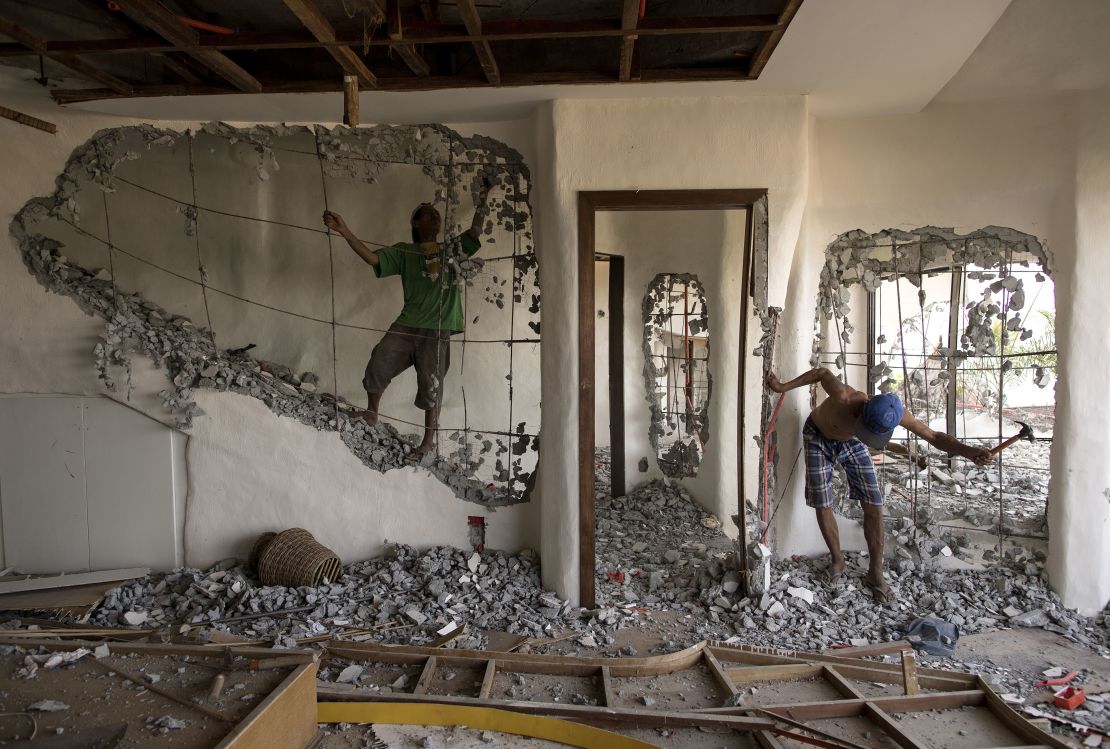
Strict laws
The new-look Boracay will be subject to rigorously enforced by-laws, the panel said, including limits to combustion engine transport, a ban on single-use plastics and offshore zones for watersports, providing a 100-meter (328-feet) swimming area from shore.
Deckchairs and tables, as well as beachside entrepreneurs like masseuses and snack and drink vendors, will be banned from the beach, as will the famous fire dancers, who will have to make do with LED lights instead of the kerosene-soaked torches they used before the shutdown.
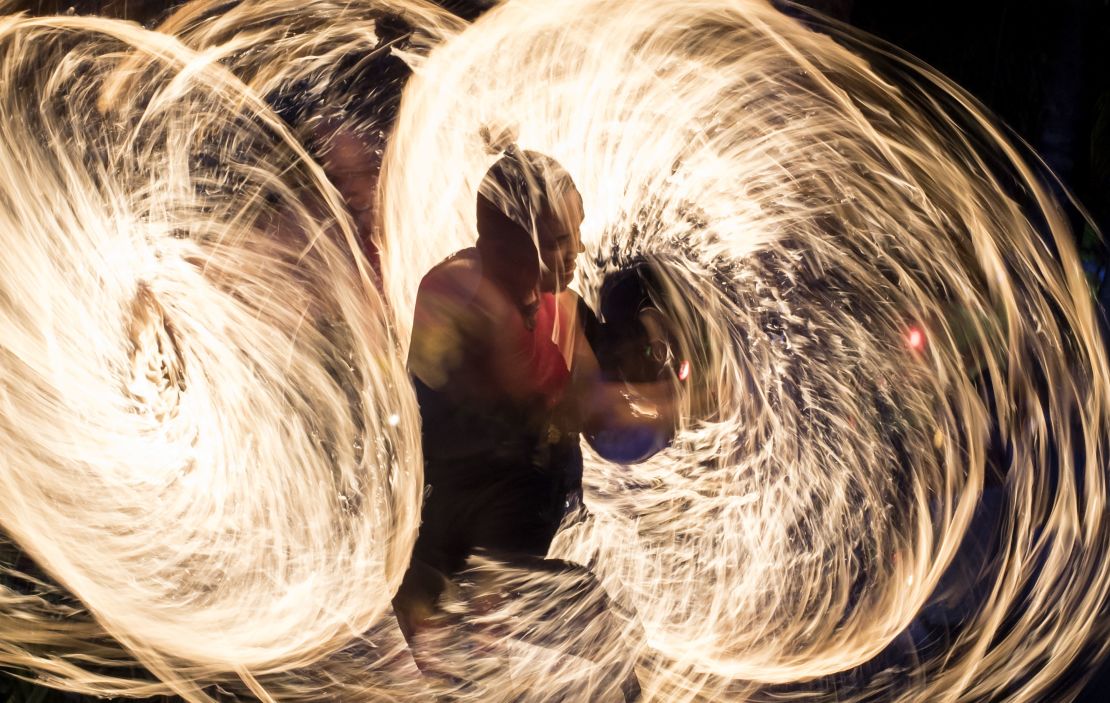
The island should be a model of sustainable tourism, Romulo-Puyat said, and the panel stated that following the overhaul the famous island could regain its crown as one of the world’s best beach resorts.
“We can make Boracay one of the most prestigious tourist destinations in the world,” Año said.
Romulo-Puyat added that “when (the rehabilitation) is all done,” Duterte will visit the island, perhaps next year.
Photos posted by the Department of Environmental Resources showed the first tranche of swimmers heading, under cloudy skies, into the newly-pristine waters following a ceremonial beachside countdown by Cimatu.
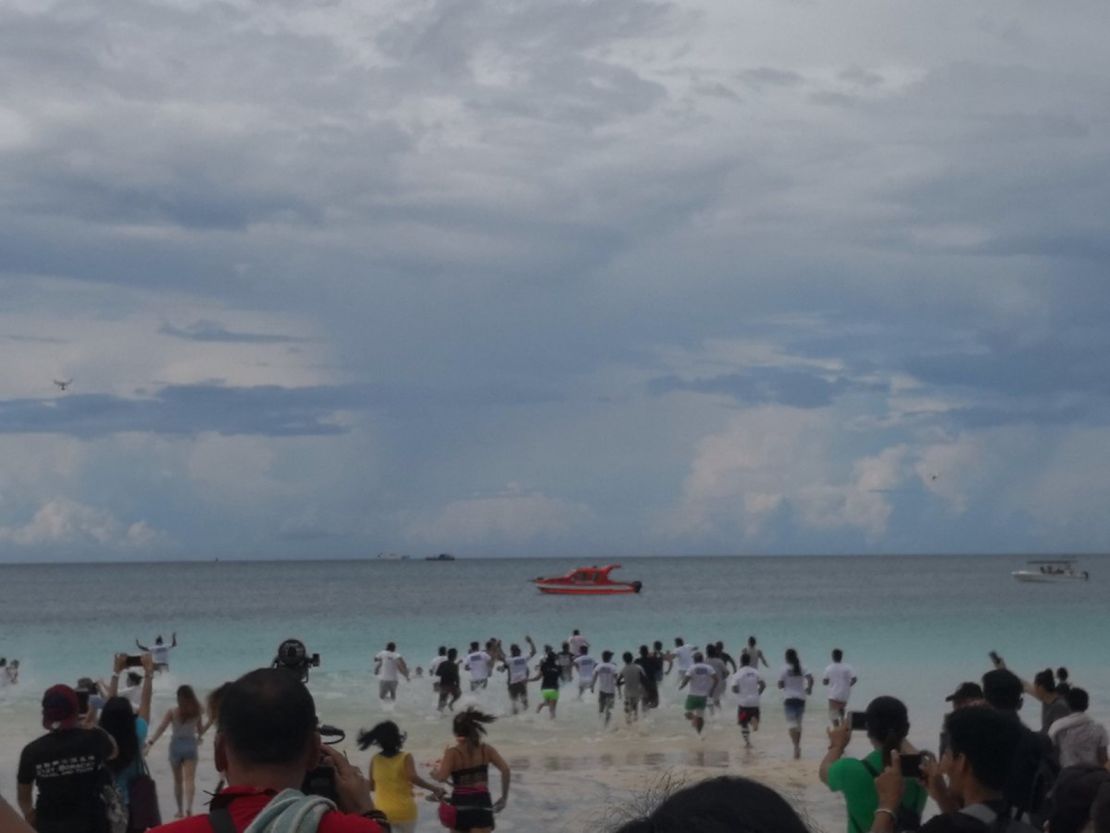
Economy needs a kickstart
The island’s residents have been eagerly awaiting the return of the tourists and were thrilled to welcome the advance party – the last six months have been a struggle for many, especially the large numbers who rely on tourism for their livelihoods.
During the cleanup operation, many of the 11,000 residents participated in the government’s “cash for work” program, which paid a daily minimum wage of 323 pesos ($6).
In August, Lilibeth Panganiban, who sells rice cakes on a street corner, told CNN Philippines that she’s seen her daily income drop from 1,800 pesos to 500 pesos, or even less.
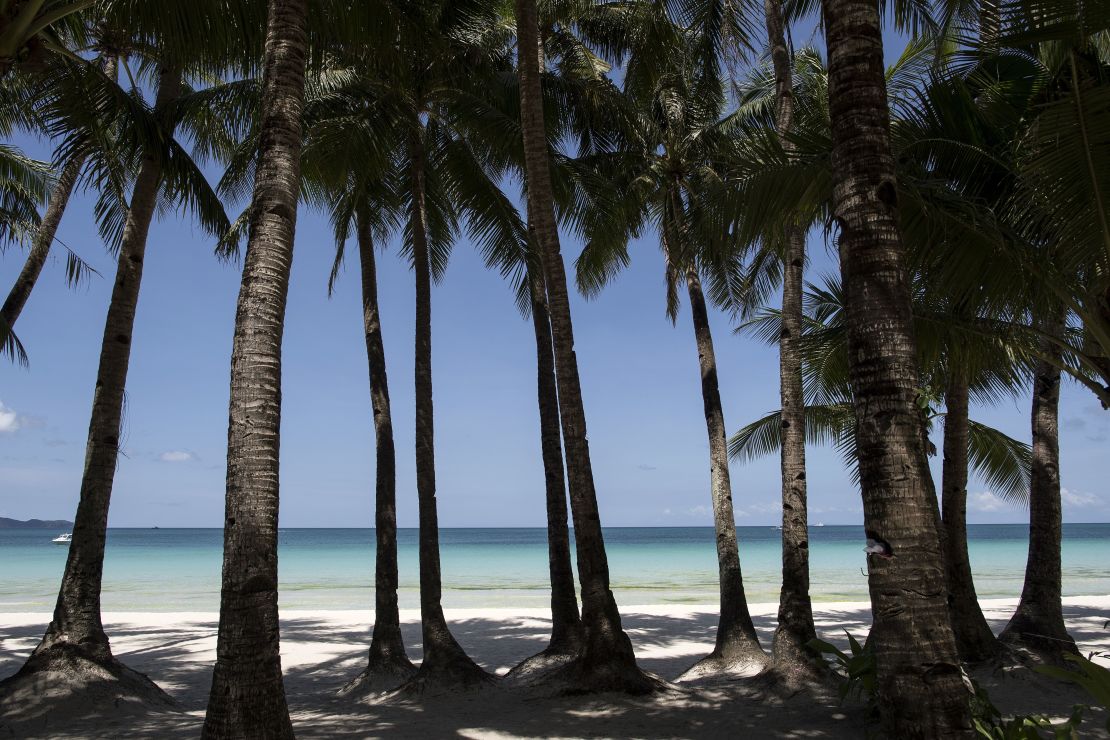
Overdue cleanup
The archipelago nation of the Philippines boasts well over 7,000 islands. Among them, Boracay had become almost a byword for white-sand beach paradise.
But with the influx of tourists that began in the 1980s, the island has struggled to maintain its idyllic allure.
Last year almost 1.7 million tourists, including a significant number of cruise line passengers, visited the island during a 10-month period, according to the governmental Philippines Information Agency.
Among the problems caused by the island’s long-running tourism boom were unregulated development, and pipes carrying raw effluence directly into the sea.
In a survey of the island’s sewerage facilities prior to the closure, the vast majority – 716 of 834 – of residential and business properties were found to have no discharge permit and were presumed to be draining waste water directly into the sea, according to a report by the official Philippines News Agency.
In February Duterte directly called out the alleged mismanagement of the island, accusing those responsible of turning it into a “cesspool.”
“As long as there is shit coming out of those pipes draining to the sea, I will never give you the time of the day (to return)” to the island, he said at the time.











